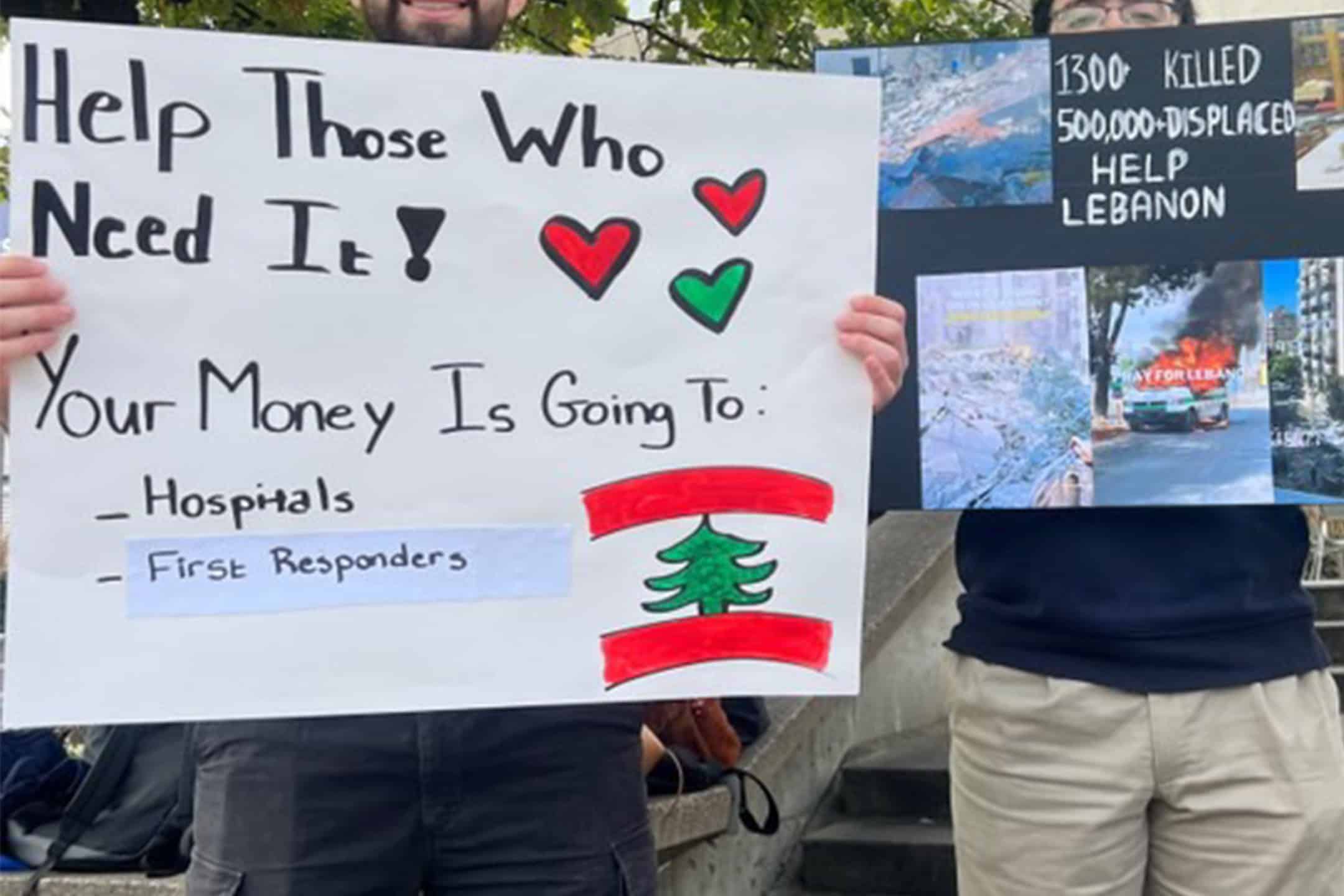Content warning: This article discusses death and ongoing violence in Lebanon and Gaza.
On September 17, thousands of pagers exploded simultaneously across Lebanon, resulting in more than 2,800 people injured and at least nine people killed. A Lebanese security source told Reuters that the Israeli intelligence agency Mossad planted explosives inside 5,000 pagers ordered by Lebanese political party and militant group Hezbollah, months before the detonations.
Since October 8, 2023, Hezbollah has been launching rockets to Israel and repeatedly vowed to cease attacks if Israel ends its war on Gaza. On September 24, Israel dramatically intensified its airstrikes in Lebanon, killing over 720 people. Lebanese authorities deemed the attacks the “deadliest barrage” since the 2006 Israel-Hezbollah war.
As of October, Israel’s escalating airstrikes on Lebanon displaced 1.2 million people. In response to the escalating humanitarian crisis, the United Nations World Food Programme and the United Nations Children’s Fund dispatched a humanitarian convoy to provide essential protection, health, water, and sanitation services to those affected.
In light of the ongoing violence, The Varsity spoke to U of T community members about Israel’s attacks on Lebanon.
Students’ reactions and response
Mohamad Yassin — president of the Muslim Students’ Association and second-year masters student studying electrical engineering — is a Palestinian who grew up in Lebanon. “Majority of my family [is] still in Lebanon in the refugee camps,” wrote Yassin in an email to The Varsity.
“After a year of witnessing unrestrained violence targeting civilians in Gaza, there is a great amount of concern that (as we are already seeing) Israel will likely do the same in Lebanon,” he added. “Community members are very troubled by the situation… Personally, I’ve been having trouble sleeping as I’m in contact with my family trying to stay as up-to-date on the situation as possible.”
Yassin shared that his family members are refusing to leave Lebanon “as they do not believe anywhere is safe based on what we have seen from Gaza.”
On September 23, the University of Toronto Mississauga Students’ Union (UTMSU) and the Middle Eastern Students’ Association released a joint statement on Instagram in response to the Israeli government’s ongoing attacks on Lebanon.
“Amidst escalating attacks and imperial violence by Israel, the University of Toronto, continues to remain willing collaborators in the actions of a settler colonial apartheid state,” wrote the statement.
In the statement, the union wrote that it stands “in solidarity with Lebanon and condemns the Israeli government’s attacks” and will continue to “demand the university to divest from all forms of direct and indirect financial investments that sustain Israeli apartheid, occupation, war and genocide.”
The statement follows the King’s College Circle pro-Palestinian student encampment, that demanded the university to disclose its investments and divest from companies that supply Israel with weapons and technology. The encampment started on May 2 and ended on July 3, following the Ontario Superior Court of Justice’s decision to grant the university’s injunction request to remove the encampment.
The university’s response
In a statement to The Varsity, a U of T spokesperson noted that any claims connecting the university to the Israeli military “have no basis in fact.”
The spokesperson added that the university has “an established process to consider divestment requests that is open to all members of the U of T community, including students.” They stated that “student activists have consistently declined to use the process.”
Yassin also called on the university to “show consistency in its approach,” referring to U of T President Meric Gertler’s response to Russia’s invasion of Ukraine.
In March 2022, Gertler released an official statement condemning Russian President Vladimir Putin’s decision to invade Ukraine. The university also introduced the Emergency Grants program to support students whose financial circumstances have been affected by the war in Ukraine.
“I think Gertler should at least be consistent and at least condemn Israel’s decision to invade Lebanon and the violence and aggression it has caused,” Yassin wrote.
On April 26, the university issued a memo on Institutional, Divisional, and Departmental Statements stating that it has “developed a set of considerations for determining whether the University of Toronto will issue an institutional statement.”
“The U of T community is remarkably diverse – a source of great strength and pride. As such, it is impossible for any single administrative statement to satisfy all or even most members of our community, or to represent their diverse views adequately,” wrote Trevor Young, Vice-President & Provost, and Christine Szustaczek, Vice-President, Communications.
They added that “Moving forward, we expect that the application of these principles will result in fewer institutional statements.”
As of writing, the university has not issued any statements regarding Israel’s attacks on Lebanon.
“U of T’s administration seems to operate under the assumption that students can remain distant from the death and suffering occurring in their countries, expecting them to package their grief into a timeline and proceed with their assignments as if everything is normal,” wrote UTMSU President Joelle Salsa in an email to The Varsity.
Showing solidarity
When asked how students can show solidarity with peers affected by the war, Yassin emphasized that simply asking people how their families are doing goes a long way.
Salsa added that students hold significant power to catalyze change on a global scale.
“We often hear the advice, ‘If you have a problem, speak to those with the power to fix it,’ but we aren’t taught that we have the power to fix it,” she wrote. “By showing up to protests and actions, advocating for divestment, and raising awareness, we can challenge the University’s harmful practices and inspire broader movements.”



No comments to display.